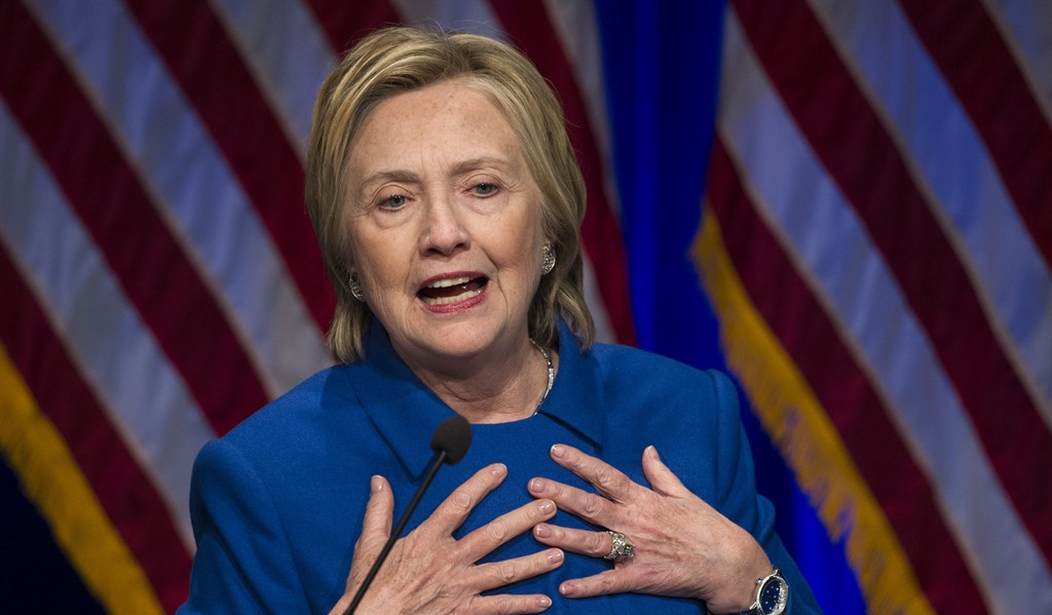In putting out the word that he does not wish to pursue investigations of the Clintons, President-elect Trump has already triggered concerns among supporters who are fed up with hearing one thing on the campaign trail and seeing another once their candidate gets to Washington. The promise to drain the swamp was essential to Trump’s stunning victory over the Clinton Machine and the Beltway ruling class. And now there is understandable worry among Trump’s voters that those portions of the swamp controlled by the Clintons might somehow become a politically protected wetland.
The question of how to deal with the Clintons is important not only in its own right but also in signaling whether the president-elect’s laudable shift in style will be accompanied by a shift in substance that could threaten the momentum of the movement that he rode to his electoral victory.
Certainly, a shift in style and tone from the campaign trail is appropriate as one shoulders the weight of the presidency. And even those who questioned his temperament and fitness for the office should admit that President-elect Trump has been nothing short of presidential since his victory. He weighs and chooses his words carefully in the awareness that his words now shape policy. He reaches out with grace and kindness to those who attacked him viciously during the campaign. He talks of coming together and healing a bitterly divided nation, and he focuses on policy objectives aimed at improving the lives of all Americans regardless of how they voted.
Trump’s stunning victory was certainly driven by policy positions, particularly those on trade and border security, that spoke to a diverse coalition of voters. But there were two other factors in his electoral success that transcended specific policy issues, and both are central to the Clinton problem.
First, candidate Trump rode a political wave that he recognized but did not create. That wave was triggered by revulsion with conventional candidates who appealed to the interests of Main Street during the campaign and then governed according to the interests of K Street and the Beltway afterwards. Mainstream America had tried to change the country’s disastrous course with electoral mandates in 2010 and 2014, only to find that Washington quickly returned to business as usual. Having tried the conventional route to no avail, mainstream America upped the ante by supporting the unconventional candidacy of Donald Trump.
Recommended
In supporting Donald Trump through the barrage of campaign attacks from the ruling class and then electing to the presidency a man who has never held elective office, mainstream America could not have given a clearer mandate for change. Following through on campaign promises would represent change of the first order, and one of Trump’s major promises was to ensure that the investigations of the email scandal and pay-for-play allegations would continue.
A second major issue that transcended specific policy positions was the growing sense that the rich and powerful are putting themselves above the law. In that light, the Clinton question is not just about the Clintons, but about restoration of rule of law. The repeated chant of “lock her up” at Trump rallies was not just a call to bring Hillary to justice as an individual. To Main Street America, Clinton’s success in escaping prosecution was merely one instance of the arrogance and lawlessness that has pervaded the Beltway in recent years. The IRS harassment of those who disagreed with the administration, the DOJ’s interference with reasonable efforts to prevent voter fraud, and Obama’s abuse of executive action all indicated to mainstream American that the rule of law was sacrificed to the agenda of those in power.
Trump’s promise to drain the swamp appealed powerfully to mainstream Americans who had grown disgusted with the corruption of the ruling elite. If the Clintons are held to a different standard under the guise of healing the nation, or because the Clinton Foundation does some good in some places, or even to prevent distraction from Trump’s recovery and growth agenda, then the message to Main Street is that his talk of draining the swamp was just campaign rhetoric and that the old order still rules.
Of course, it would be inappropriate for the president-elect to personally push for the prosecution of a political opponent, just as it was inappropriate for Obama to downplay the evidence against Hillary Clinton in the email scandal or for the DOJ leadership to undercut the ongoing investigation. But it is not necessary for President-elect Trump to push for the investigation of the Clintons or, for that matter, to declare the investigations closed. He simply needs say that the career professionals in the FBI will follow the law without political interference one way or the other. That would send a clear and appropriate message that he is honoring his campaign theme of restoring rule of law to Washington.
Though healing is a commendable goal, the denizens of the swamp don’t want healing. They want the old order to continue unchecked. But for mainstream America, the best way to promote healing is to start by draining the swamp.
























Join the conversation as a VIP Member